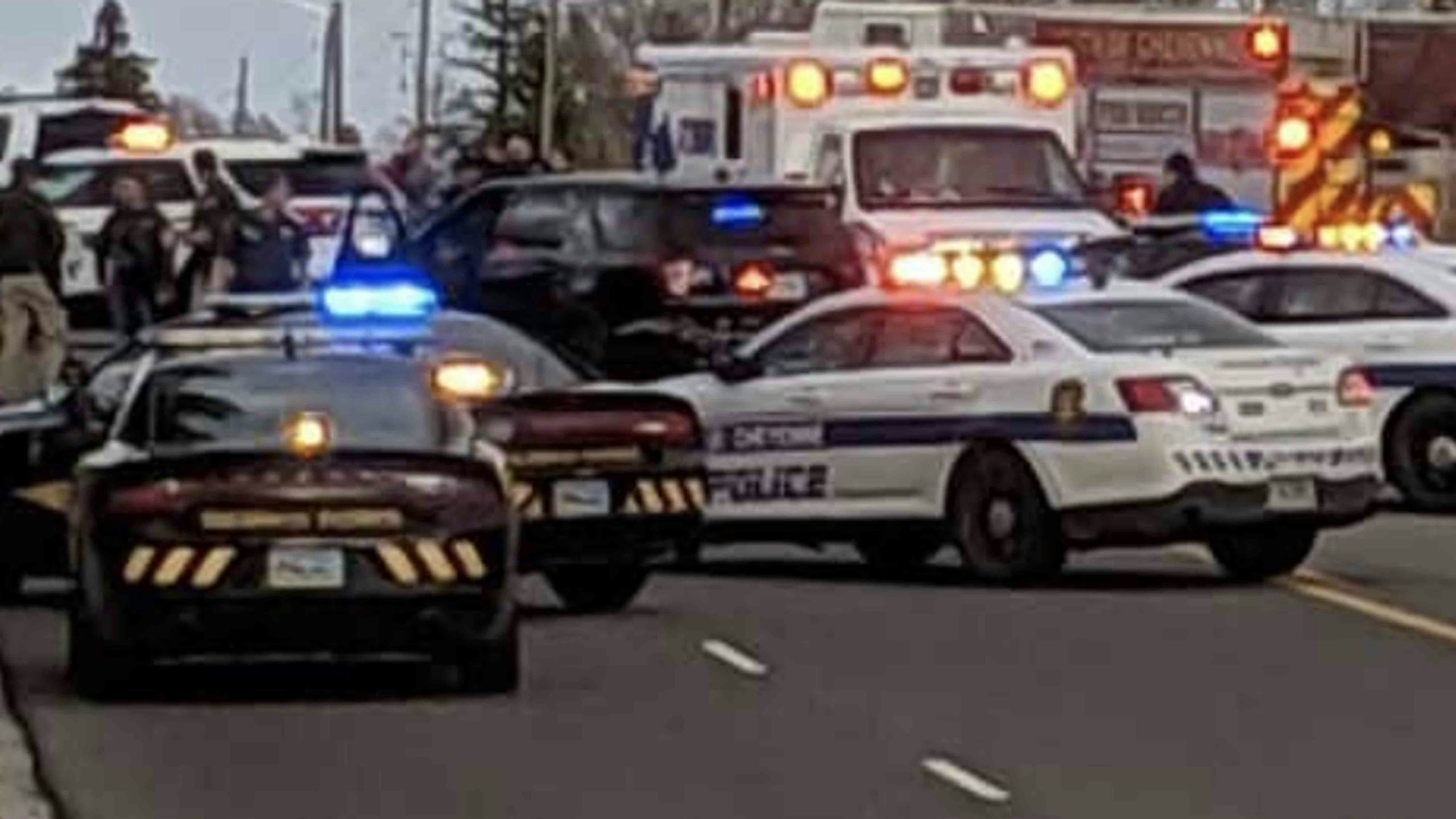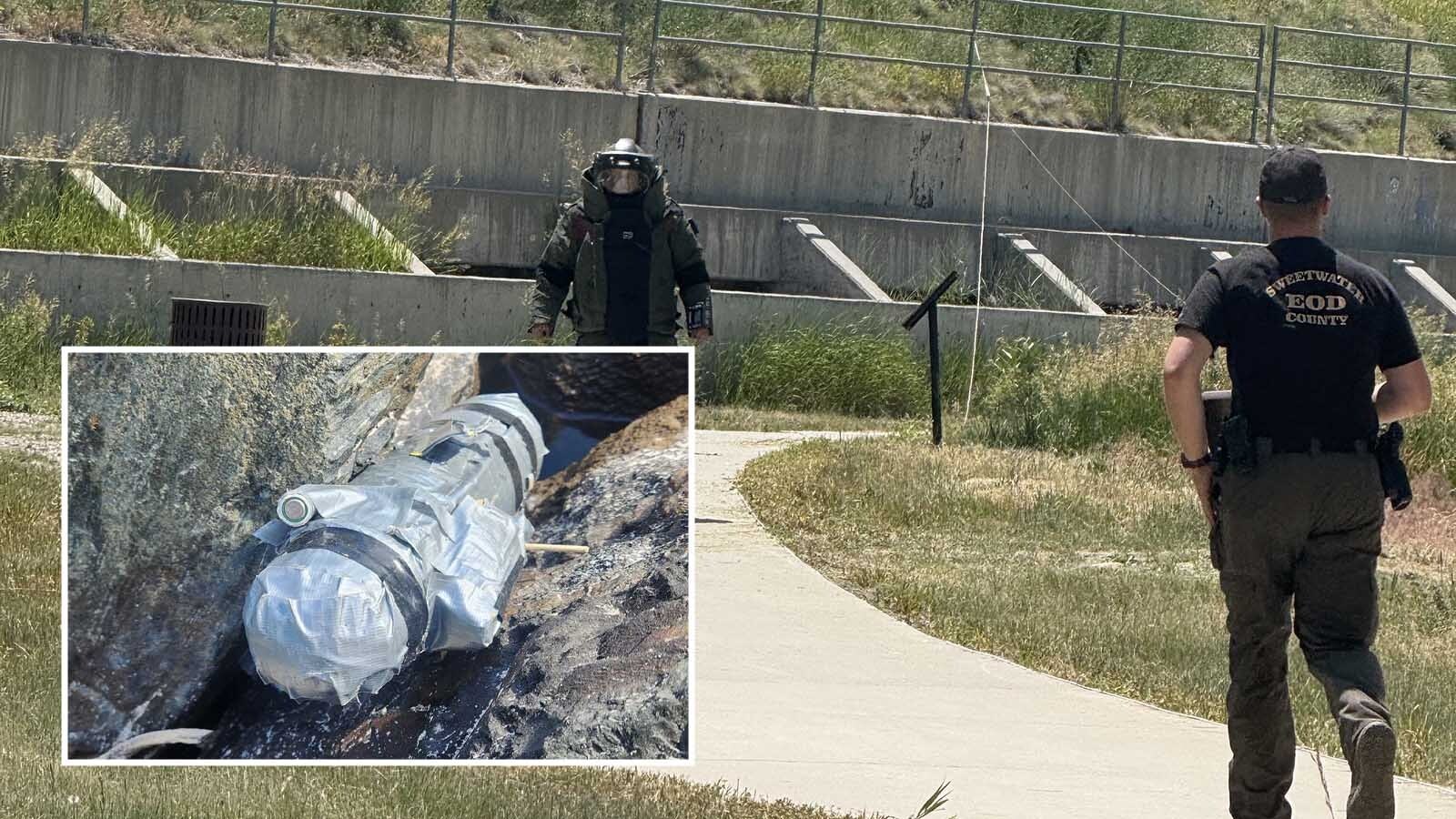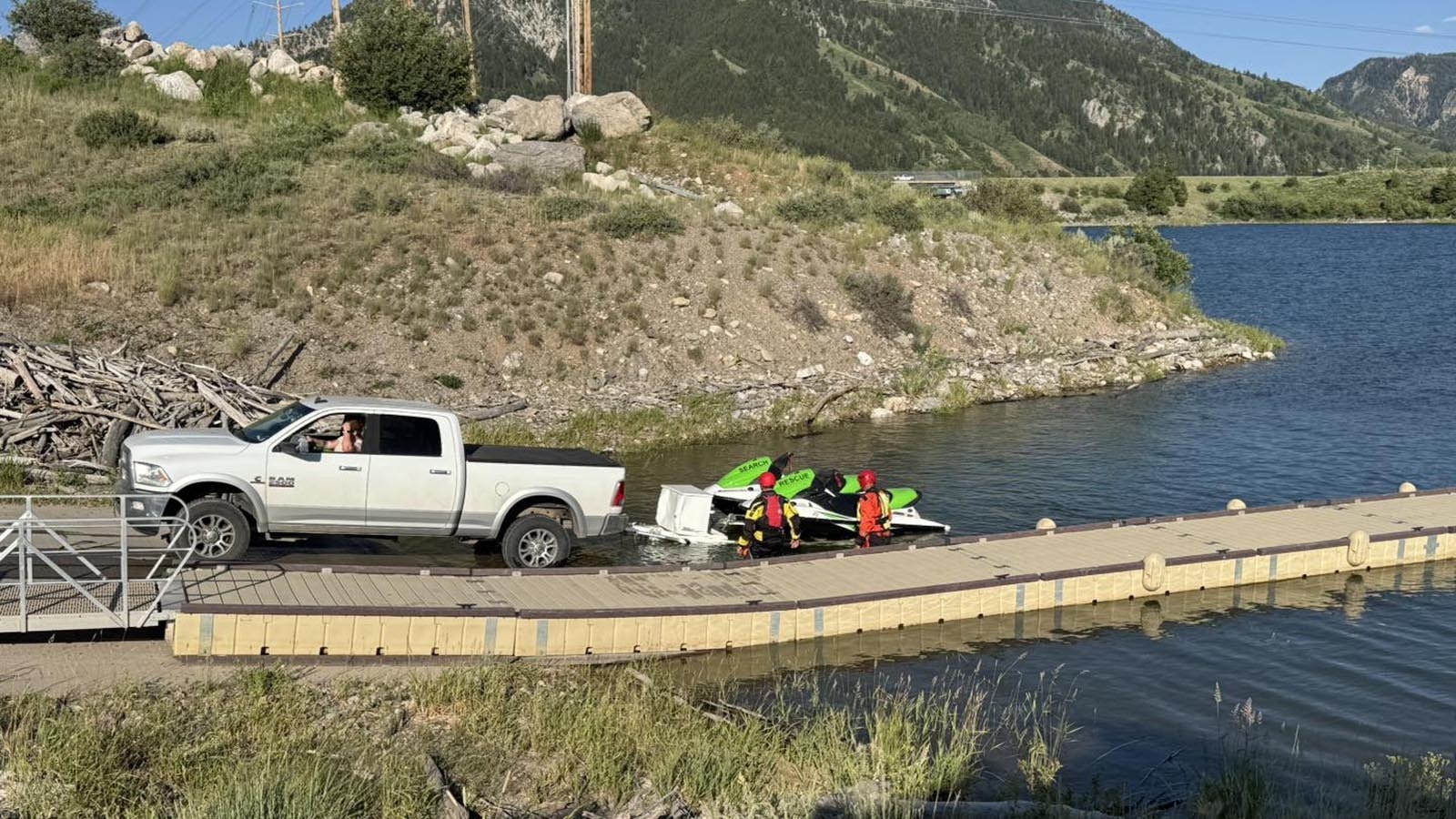Law enforcement agencies throughout the state are reporting significant increases in the number of calls they have responded to over the last year.
That extra load means an increase in stress for those who are sworn “to protect and serve,” even in a state as supportive of law enforcement as Wyoming.
Byron Oedekoven, executive director of the Wyoming Association of Sheriffs and Chiefs of Police, said the same factors affecting people nationally are putting additional strains on Wyoming residents, which results in increased tensions and increases in law enforcement calls.
“We’re very fortunate that we are in Wyoming in the first place, and that we enjoy the community support that we do,” Oedekoven said. “Unfortunately, with COVID, with the lockdowns in other areas, the stress that it puts on families here and their extended families, it’s taking a toll on us as well,” he continued. “The uncertainty to the economy and the whole infrastructure issues that are going on; the war on the west, the war on petroleum, which makes some of the job market uncertain, which again, leads to that family stress – in a lot of cases, that leads to increased law enforcement calls.”
“In 2020, the total calls to the dispatcher — and that’s everything from dog calls to, you know, ‘I ran off the road’ — was about 34,995 calls,” said Sheriff Steve Rakness in Washakie County. “Last year, for 2021, we had 39,463 calls.
“We had a total increase in drug calls,” Rakness continued. “Those have increased – and juveniles are committing more crimes. I’ve had in 2021 more juveniles in my jail being charged with adults than ever with capital crimes, high felonies.”
“We have had more use of force incidents in the last year than we’ve had in multiple years combined,” said Ken Blackburn, sheriff of Big Horn County. “And a lot of that is just the divisive nature of our community and of society right now.”
Gun violence has increased in rural counties, as well, sheriffs said.
“More people have guns,” Rakness said. “That puts all law enforcement in jeopardy.”
Just last month, in the tiny town of Basin (population less than 1,400), a police officer shot the Basin School District’s special education director, who was making suicidal threats and carrying an automatic weapon. That sort of call doesn’t happen often in rural communities – and when it does, it takes a psychological toll on the officer as well as the town’s residents.
“We’ve had two officer-involved shootings in the Bighorn Basin this year, and I want to say four homicides in Big Horn County in the last year,” Blackburn said. “I couldn’t even begin to count the number of increased domestic violence situations, which is already fairly high, but I believe has been exacerbated by the climate of the last two years.” Blackburn pointed out that criminal activity that originates outside the state’s borders is beginning to have a larger impact on Wyoming.
“Some of the drugs that are coming into the state are really quite dangerous,” he said. “There are new drugs coming into the area, this Mexican fentanyl is coming in. And they’re so powerful — we’ve had three or four incidents just in Big Horn County of fatalities this year, of people having to be resuscitated because the drug was so damaging so quickly to them, and it stopped their breathing.”
“The prevalence of drugs, the carriers and the gangs, the cartels are marketing those drugs through their newly established travel routes over the border,” said Oedekoven. “When you can see million-dollar seizures of drugs in Wyoming, that’s huge. That’s a significant impact. And yet, we’ve cut back and reduced the number of officers working those kinds of cases.”
Those budget cuts are affecting more than just high-profile cases, according to Blackburn, who blames the “de-fund the police” movement and other anti-government sentiments for some of the issues facing law enforcement.
“We’re caught in the public opinion between ‘We don’t want government,’ and yet when they dial 911 they expect someone to be there immediately,” Blackburn said. “And it’s kind of a Catch-22.”Oedekoven added that it’s not just budget cuts causing a reduction in law enforcement staffing — it’s harder to find qualified recruits.
“The average person is unsure that they would like to start a career in law enforcement,” Oedekoven said. “And then there’s folks who are applying for positions within law enforcement who are clearly not qualified. And in part, I think it’s because they see some of the antics of some of the officers on the East and the West coasts.”
“Hiring somebody is like pulling teeth from a dragon,” Rakness said. “We just can’t find anybody to work.”
Blackburn pointed out that smaller officer numbers didn’t used to be a problem.
“We’ve always been able to get by with less officers, because we were able to handle that call volume,” he said. “But that call volume is increasing so significantly that the officers are working overtime to try to keep up with the call volume and the call load, and it’s wearing them out and burning them out.”
Blackburn said he and his fellow law enforcement officers are frustrated by the mixed messages they receive from the public.
“When I first started law enforcement, we were kind of the good guys,” he said. “And this culture of anti-law enforcement and police reforms, even though we don’t see it as much in Wyoming as we see around the nation, those comments are still very, very hard. And I would venture that at least 80% of law enforcement officers get involved because they want to make a difference, and they want to help people. And that feeling that we’re not wanted, has been exacerbated by this counterculture in America right now.”
Blackburn said there are many residents who show support for law enforcement — but those are offset by others who are critical of police and sheriff’s departments.
“There are those times when we go and our team is scratching their heads, wondering sometimes why we’re doing this,” he said, “because we’re kind of between a rock and a hard spot. We’re damned if we do, damned if we don’t, and it becomes a very frustrating position.
”Low officer pay affects morale as well, according to Blackburn.
“There are a lot of positions out there that pay just as much money that don’t require the sacrifice, the difficult hours or the risk,” he said. “And it takes its toll emotionally – we’ve certainly seen that with multiple law enforcement suicides in the last year.”
But Blackburn pointed out that some officers cope with that stress by going above and beyond to take care of those in their communities.
“Near Christmas, when all these other agencies have given out their gifts, we invariably hear about some family that comes on the hardest of times and they slip through the cracks,” he said. “And that’s one of the ways that (officers) cope – by giving service.”
Blackburn said that despite the hardships of the job, the vast majority of law enforcement officers around the state are hard working and dedicated.
“We’re not whining about it,” he said. “We know we knew what the job was when we took it, and these guys are working really hard. And there are bad cops out there, but there are a lot of really, really great things that these guys do day in and day out that nobody ever sees.”





